Maggie has made a career out of ‘shining a light on the forgotten half of the Irish property market’, and helping people find homes in an increasingly unaffordable housing market.
“It’s something I’m very passionate about,” she says. “I’m from the countryside and I couldn’t afford to stay living in Wexford, so I had to move.
“It’s a big thing to know that young people have a chance of living somewhere in the countryside and bringing a bit of life back into it. I love it.”
Now running a successful Instagram page and weekly newsletter, as well as being anchor of her own show (Cheap Irish Homes on RTÉ), Maggie documents old Irish homes for sale – usually under the price of 100k.
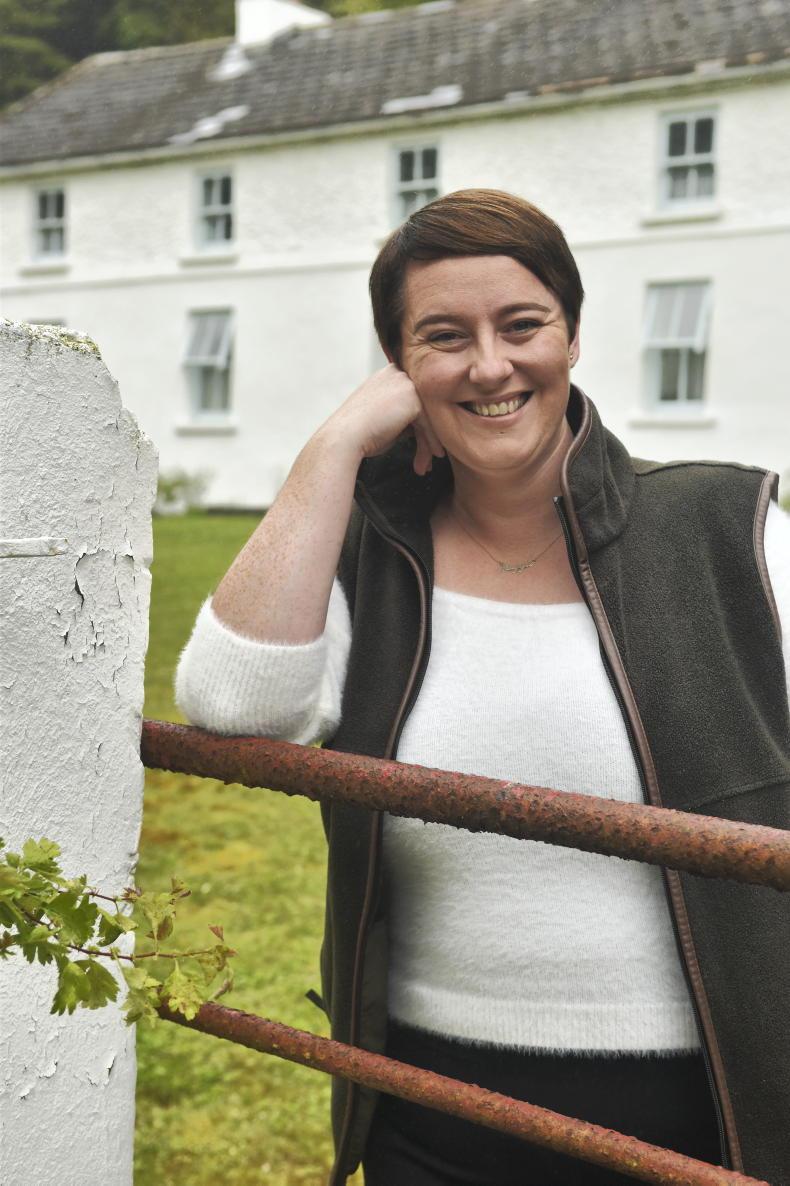
Maggie Molloy at her own cheap Irish house in Co Tipperary.
However, her passion was never intended to become a career.
“I love old houses,” she explains. “A couple of years ago I had a hobby – I used to go around and take photographs of [abandoned houses in rural Ireland]. I had been driving around Tipperary, and there was this little house – and it had been so beautiful. The next year I drove past and it was gone.
“Someone just knocked it down,” she continues. “It used to be so lovely, and then it was just gone. I remember being so heartbroken and going, you know, I’m going to document these and maybe other people would be interested in them.”
She began contacting estate agents to document the houses they had for sale, too.
“I put up one or two and they were maybe €30,000 each – and the amount of people that got back saying, ‘Oh my god, is this actually for sale?’
“Now, bear in mind I probably had 200 followers,” she laughs – however, that is how her business took off. Describing the moment she knew she might be onto something, Maggie recalls her mother showing her an Instagram page – without realising it was Maggie’s.
“She was like, ‘I keep showing these to daddy. Now they’re not fancy houses, they be aul wrecks, like you would like’.”
Move to television
Discussing her popular TV show, Maggie says she never considered television a possibility.
“I’m not great at public speaking – but it’s not public speaking, either. It’s kind of just talking about stuff you’re interested in.
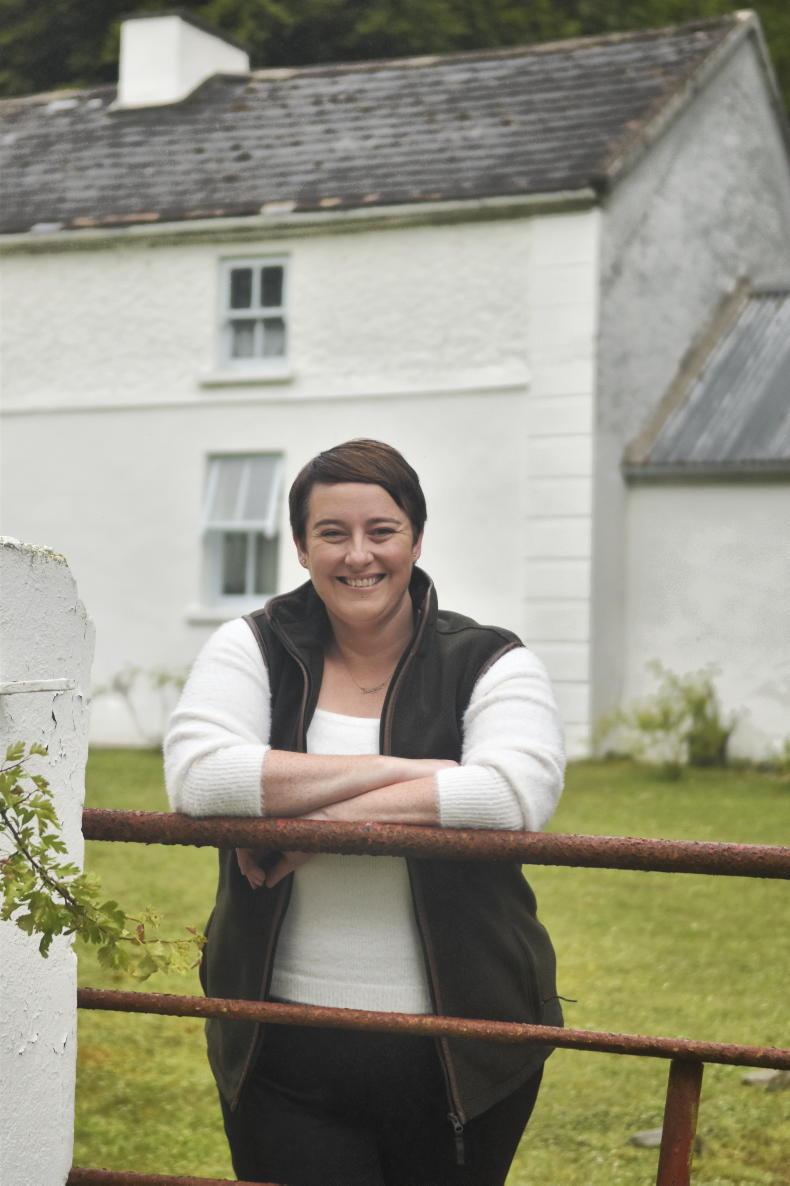
Maggie Molloy bought her own home at the age of 23..
“Basically, it’s just me trawling around looking at old houses – it’s not like I’m an estate agent. I just don’t like seeing so much of rural Ireland empty. The thing I love is saving the old house. I’m very sentimental about old rural Ireland, my gran and family would have been real old Irish. When you do estate agent stuff you represent the seller, not the buyer. I think the buyer is the one who needs the help more.”
Out of options
Maggie describes her own cheap Irish house journey. “I’m halfway done!” She laughs.
That said, the ability to buy a house at 23 (as Maggie did) is no joke. For many young people in Ireland, it’s an unimaginable prospect. After years working away from home, Maggie was homesick and yearned to return to Wexford. When she returned, she was dismayed to find she couldn’t afford to buy.
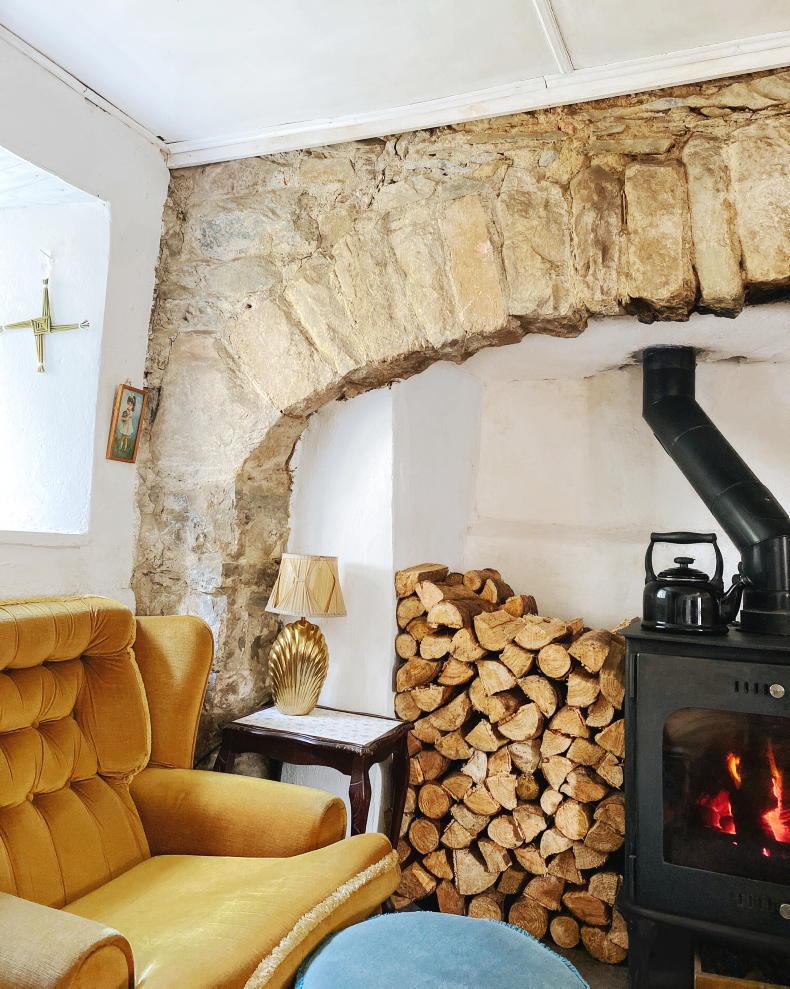
Maggie is 'half-way' through finishing her own cheap Irish home.
“I had worked so hard to get back to Wexford and I was like, ‘This is where I’m going to spend the rest of my life.’ But I was in a rental, there was no heating and I was so cold.”
After successfully securing a mortgage, she could not find anywhere in Wexford within her budget. She eventually found her future home in Tipperary.
“The place was €80,000 and it was fully derelict,” she says. “It was dry inside and the roof was OK, but it had no windows and only had the top half of the door. I moved in immediately – I probably shouldn’t have. It wouldn’t have been habitable in anyone else’s mind.
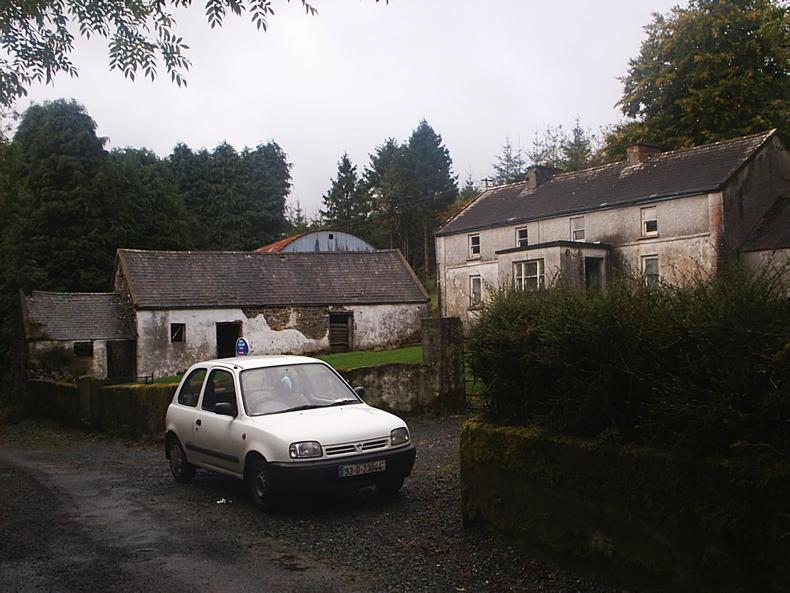
Maggie's house before she got to work on it.
“I got my services sorted, I mean, basic services,” she continues. “I got them to put one double socket in the sitting room, so I could get my ESB bill. I just did the bare minimum, and I didn’t borrow again. Because I’m on the telly, a lot of people think my house is like something off ‘Home of the year’. I was in it 14 years before I got a fitted kitchen!”
Although Maggie loves her home, she outlines that it’s not always easy.
“We have tough times still, we don’t make a fortune. We have times where it gets on top of you and we always just have to say, ‘What was the alternative?’ We have no other options. If I went to Wexford now, I still could not afford to buy a house. I couldn’t move home.”
An alternative
Maggie believes Cheap Irish Houses offers an alternative to people paying high rents.
“I’ve been in situations where I’ve been really, really stuck for somewhere to live. There’s a lot of the houses on the show and on my Instagram feed that, if I was stuck, I could live in. People say to me, ‘They’re all ruins; they’re piles of stones’, but if you can get into a house for €70,000 and you can unpack your bags and start cooking your dinner, that’s a huge thing.”
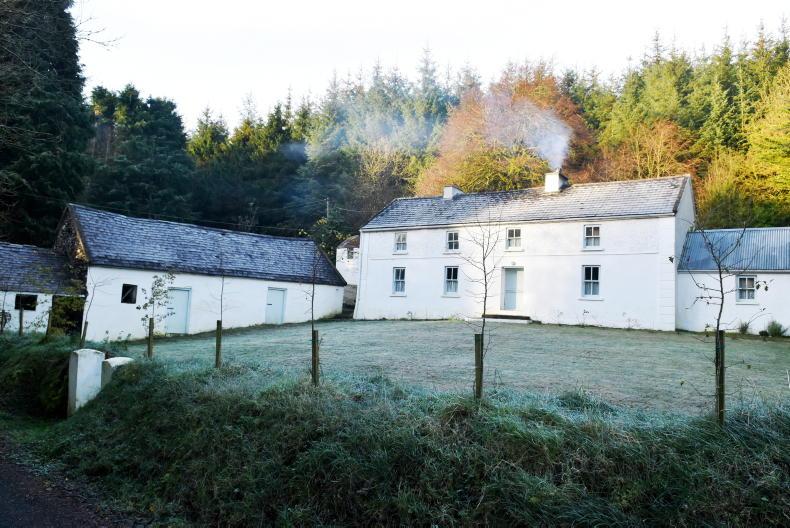
Maggie's house now after repairing it.
Discussing the state of the housing market Maggie says young people are coming around to the idea of Cheap Irish Houses more because they don’t have a lot of options.
“I bring young people around the houses and they’re delighted because it has a toilet,” she says. “It’s sad that people in their early 20s are delighted that a €100,000 house has a toilet. That’s where we are, at the moment, with houses. It’s so sad.”
“We have to start making the move,” she continues. “Even just getting that little bit of incentive and enthusiasm going, that’s all we need to start. It’s been a long time since there’s been any enthusiasm about moving to rural Ireland. It then shows younger people that, maybe, we don’t have to leave at all.”
For Maggie, the biggest positive of buying a cheap Irish house is the low mortgage.
After the recession I was two years out of work, I worked in IT and there was no work in IT in Tipperary
“Keeping the mortgage repayment low is good as it gives young people that confidence they can keep the house if anything ever goes wrong. The more pressure you put on yourself to pay back a big loan, means the more pressure there is if anything goes wrong.”
Speaking from experience, Maggie says: “After the recession I was two years out of work, I worked in IT and there was no work in IT in Tipperary, and I remember being so glad they hadn’t given me a bigger mortgage payment, so I wouldn’t lose the house.”
Getting started
For many, buying an older house can be intimidating. However, Maggie believes it doesn’t have to be.
“There’s so many different levels of houses out there,” she explains. “If you were very nervous, the trick is to just buy a better house – and I don’t mean to say the trick is to just be better off. I’m not a snob when it comes to vacant houses or architecture; you can buy a vacant bungalow that’s been built in the last 30 years or you could also just find one that isn’t as far gone.
“Kieran [McCarthy, Maggie’s co-host] always says: buy the best house you can afford with your money, because the amount of time you would save having to do the work, it’s just so much stress off your shoulders.”
The future
Discussing what she hopes will come from Cheap Irish Houses, Maggie says she would love to see more value being placed on older buildings.
Planning laws shouldn’t be made by business men, but people trained in conserving culture
“People don’t put enough stock in our past,” she says. “There will come a time when all the old houses are gone. So much of our tourism is ‘come over and see the thatched cottages’, but they’re not going to be here anymore, only when the tourism fails because of it they might have to consider building faux thatched cottages in Dingle.” She also believes incorporating historic Irish architecture into new builds should also be encouraged.
“Planning laws shouldn’t be made by business men, but people trained in conserving culture,” she quips.
She hopes renewed interest in old rural houses will help develop rural regions.
“I love the idea of the kind of communities that I would have grown up in coming back to life. To me that’s what rural Ireland is, it’s the fields and the houses two fields apart, and the GAA club, and the undertaker attached to the pub.
“That’s rural Ireland to me, it’s not big, massive towns, with train stations. They have a lot going for them already, I think it’s the rest of us who kind of get forgotten.”
Season two of Cheap Irish Homes will be out in autumn 2021 on RTÉ.
Read more
Home of the future: alternatives to the norm
Finding that work-life balance on the farm
Maggie has made a career out of ‘shining a light on the forgotten half of the Irish property market’, and helping people find homes in an increasingly unaffordable housing market.
“It’s something I’m very passionate about,” she says. “I’m from the countryside and I couldn’t afford to stay living in Wexford, so I had to move.
“It’s a big thing to know that young people have a chance of living somewhere in the countryside and bringing a bit of life back into it. I love it.”
Now running a successful Instagram page and weekly newsletter, as well as being anchor of her own show (Cheap Irish Homes on RTÉ), Maggie documents old Irish homes for sale – usually under the price of 100k.

Maggie Molloy at her own cheap Irish house in Co Tipperary.
However, her passion was never intended to become a career.
“I love old houses,” she explains. “A couple of years ago I had a hobby – I used to go around and take photographs of [abandoned houses in rural Ireland]. I had been driving around Tipperary, and there was this little house – and it had been so beautiful. The next year I drove past and it was gone.
“Someone just knocked it down,” she continues. “It used to be so lovely, and then it was just gone. I remember being so heartbroken and going, you know, I’m going to document these and maybe other people would be interested in them.”
She began contacting estate agents to document the houses they had for sale, too.
“I put up one or two and they were maybe €30,000 each – and the amount of people that got back saying, ‘Oh my god, is this actually for sale?’
“Now, bear in mind I probably had 200 followers,” she laughs – however, that is how her business took off. Describing the moment she knew she might be onto something, Maggie recalls her mother showing her an Instagram page – without realising it was Maggie’s.
“She was like, ‘I keep showing these to daddy. Now they’re not fancy houses, they be aul wrecks, like you would like’.”
Move to television
Discussing her popular TV show, Maggie says she never considered television a possibility.
“I’m not great at public speaking – but it’s not public speaking, either. It’s kind of just talking about stuff you’re interested in.

Maggie Molloy bought her own home at the age of 23..
“Basically, it’s just me trawling around looking at old houses – it’s not like I’m an estate agent. I just don’t like seeing so much of rural Ireland empty. The thing I love is saving the old house. I’m very sentimental about old rural Ireland, my gran and family would have been real old Irish. When you do estate agent stuff you represent the seller, not the buyer. I think the buyer is the one who needs the help more.”
Out of options
Maggie describes her own cheap Irish house journey. “I’m halfway done!” She laughs.
That said, the ability to buy a house at 23 (as Maggie did) is no joke. For many young people in Ireland, it’s an unimaginable prospect. After years working away from home, Maggie was homesick and yearned to return to Wexford. When she returned, she was dismayed to find she couldn’t afford to buy.

Maggie is 'half-way' through finishing her own cheap Irish home.
“I had worked so hard to get back to Wexford and I was like, ‘This is where I’m going to spend the rest of my life.’ But I was in a rental, there was no heating and I was so cold.”
After successfully securing a mortgage, she could not find anywhere in Wexford within her budget. She eventually found her future home in Tipperary.
“The place was €80,000 and it was fully derelict,” she says. “It was dry inside and the roof was OK, but it had no windows and only had the top half of the door. I moved in immediately – I probably shouldn’t have. It wouldn’t have been habitable in anyone else’s mind.

Maggie's house before she got to work on it.
“I got my services sorted, I mean, basic services,” she continues. “I got them to put one double socket in the sitting room, so I could get my ESB bill. I just did the bare minimum, and I didn’t borrow again. Because I’m on the telly, a lot of people think my house is like something off ‘Home of the year’. I was in it 14 years before I got a fitted kitchen!”
Although Maggie loves her home, she outlines that it’s not always easy.
“We have tough times still, we don’t make a fortune. We have times where it gets on top of you and we always just have to say, ‘What was the alternative?’ We have no other options. If I went to Wexford now, I still could not afford to buy a house. I couldn’t move home.”
An alternative
Maggie believes Cheap Irish Houses offers an alternative to people paying high rents.
“I’ve been in situations where I’ve been really, really stuck for somewhere to live. There’s a lot of the houses on the show and on my Instagram feed that, if I was stuck, I could live in. People say to me, ‘They’re all ruins; they’re piles of stones’, but if you can get into a house for €70,000 and you can unpack your bags and start cooking your dinner, that’s a huge thing.”

Maggie's house now after repairing it.
Discussing the state of the housing market Maggie says young people are coming around to the idea of Cheap Irish Houses more because they don’t have a lot of options.
“I bring young people around the houses and they’re delighted because it has a toilet,” she says. “It’s sad that people in their early 20s are delighted that a €100,000 house has a toilet. That’s where we are, at the moment, with houses. It’s so sad.”
“We have to start making the move,” she continues. “Even just getting that little bit of incentive and enthusiasm going, that’s all we need to start. It’s been a long time since there’s been any enthusiasm about moving to rural Ireland. It then shows younger people that, maybe, we don’t have to leave at all.”
For Maggie, the biggest positive of buying a cheap Irish house is the low mortgage.
After the recession I was two years out of work, I worked in IT and there was no work in IT in Tipperary
“Keeping the mortgage repayment low is good as it gives young people that confidence they can keep the house if anything ever goes wrong. The more pressure you put on yourself to pay back a big loan, means the more pressure there is if anything goes wrong.”
Speaking from experience, Maggie says: “After the recession I was two years out of work, I worked in IT and there was no work in IT in Tipperary, and I remember being so glad they hadn’t given me a bigger mortgage payment, so I wouldn’t lose the house.”
Getting started
For many, buying an older house can be intimidating. However, Maggie believes it doesn’t have to be.
“There’s so many different levels of houses out there,” she explains. “If you were very nervous, the trick is to just buy a better house – and I don’t mean to say the trick is to just be better off. I’m not a snob when it comes to vacant houses or architecture; you can buy a vacant bungalow that’s been built in the last 30 years or you could also just find one that isn’t as far gone.
“Kieran [McCarthy, Maggie’s co-host] always says: buy the best house you can afford with your money, because the amount of time you would save having to do the work, it’s just so much stress off your shoulders.”
The future
Discussing what she hopes will come from Cheap Irish Houses, Maggie says she would love to see more value being placed on older buildings.
Planning laws shouldn’t be made by business men, but people trained in conserving culture
“People don’t put enough stock in our past,” she says. “There will come a time when all the old houses are gone. So much of our tourism is ‘come over and see the thatched cottages’, but they’re not going to be here anymore, only when the tourism fails because of it they might have to consider building faux thatched cottages in Dingle.” She also believes incorporating historic Irish architecture into new builds should also be encouraged.
“Planning laws shouldn’t be made by business men, but people trained in conserving culture,” she quips.
She hopes renewed interest in old rural houses will help develop rural regions.
“I love the idea of the kind of communities that I would have grown up in coming back to life. To me that’s what rural Ireland is, it’s the fields and the houses two fields apart, and the GAA club, and the undertaker attached to the pub.
“That’s rural Ireland to me, it’s not big, massive towns, with train stations. They have a lot going for them already, I think it’s the rest of us who kind of get forgotten.”
Season two of Cheap Irish Homes will be out in autumn 2021 on RTÉ.
Read more
Home of the future: alternatives to the norm
Finding that work-life balance on the farm










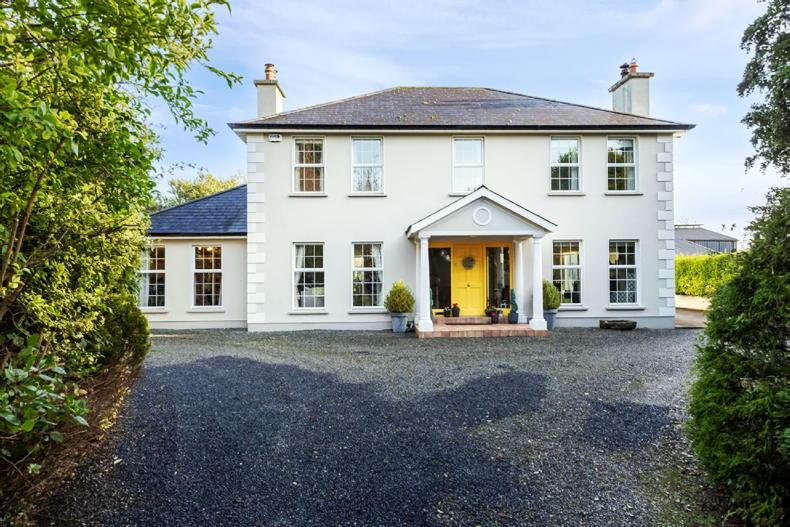

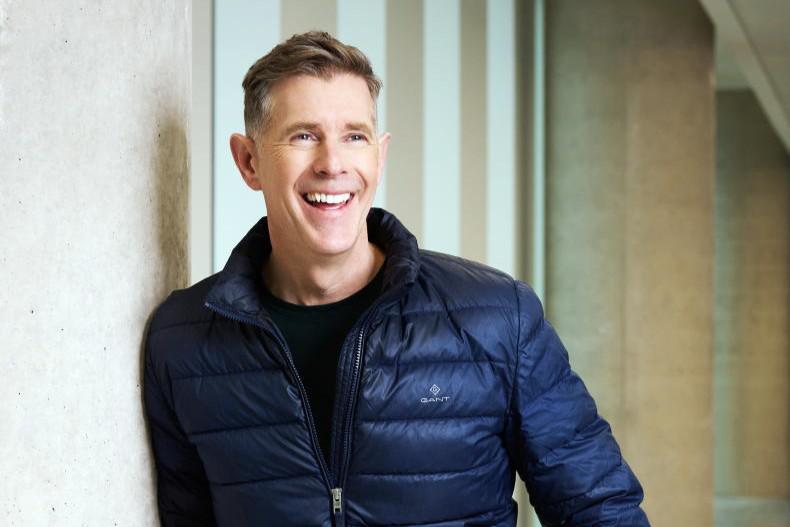
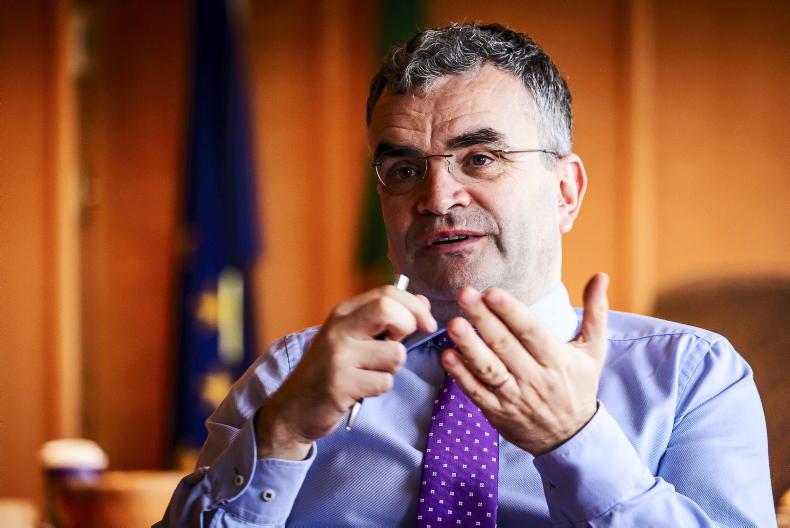
SHARING OPTIONS